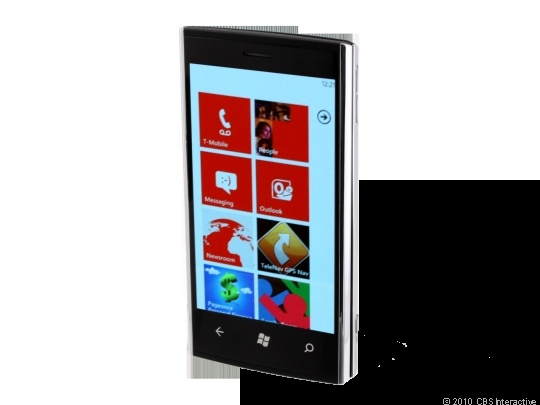Microsoft needs to jump start Windows Phone 7; Here are five suggestions

Microsoft has reportedly sold 2 million Windows Phone 7 licenses, but the actual sell-through---consumers who actually purchase these smartphones---remains a mystery. Now NPD Group puts Windows Phone 7 market share at 2 percent of the smartphone market in the fourth quarter.
Clearly, Windows Phone 7 didn't light up sales dramatically. AT&T gave Windows Phone 7 a passing mention on its earnings conference call, but highlighted Research in Motion sales as strong. NPD reports that Windows Phone 7 devices debuted with 2 percent market share tied with Palm's WebOS. Microsoft's Windows Mobile market share fell 3 points to 4 percent. If you assume that Windows Phone 7 eclipses Windows Mobile, Microsoft will wind up with about 6 percent smartphone share in the next few quarters.

Microsoft officials have said Windows Phone 7 is a marathon not a sprint. But no matter how much Microsoft spins it, the company couldn't garner more share despite buy-one-get-one promotions at AT&T and T-Mobile. Microsoft needs some dramatic moves if it's going to stand out in a smartphone dominated by Android (53 percent of the smartphone market) and Apple and RIM (19 percent share each per NPD). NPD's bottom line: "Windows Phone 7 also entered the market with lower share than either Android or webOS at their debuts."
Nevertheless, ZDNet is beginning to wonder if Microsoft will be able to goose Windows Phone 7 adoption. Ed Bott asks whether Windows Phone 7 will get its grand opening and Matthew Miller wonders whether the OS will garner much usage.
So what can Microsoft do to give Windows Phone 7 more juice? Here are five suggestions:
Call Nokia and buy some market share. Nokia CEO Stephen Elop hinted last week that the phone maker is going to look into other operating systems. Most observers took those hints to mean that Nokia will go with Android devices in the U.S. The odds are good that Nokia will look at Android. Microsoft has to get into the mix at Nokia. In fact, Microsoft should pay heavily to get Nokia to use its operating system overseas. Nokia needs diversification and Microsoft needs distribution. Microsoft will have to pay to play.
Get better hardware. Let's face it---Microsoft partners aren't inspiring a lot of gadget lust with the Windows Phone 7 hardware designs. The software giant needs to dangle more carrots to get cutting edge designs. Windows Phone 7 is a fine operating system, but hardware is a big part of the smartphone buying decision.
Launch a Windows Phone 7 tablet already. Microsoft has built an app ecosystem fairly quickly and many of those Xbox games would look good on a larger screen. Add it up and Windows Phone 7 has the interface, Office hooks and characteristics to work well on a tablet. Instead, Microsoft keeps pitching Windows 7 tablets. Give Windows Phone 7 away. It's hard to compete with Android, which is free. Microsoft should just give Windows Phone 7 to carriers to level the playing field. If Microsoft really wants to be bold it should open source Windows Phone 7. Hell may freeze over if Windows Phone 7 went open source, but it's hard to think of a bolder move for Microsoft.
Focus on feature phones. How many smartphone operating systems do we need? Microsoft could grab more share by focusing on feature phones---the largest part of the phone market. This focus on feature phones could also be ramped in emerging markets such as India, Brazil and China.
Will Windows Phone 7 conquer the smartphone world? Probably not. But with a few breaks Microsoft could get some respectable share, say 10 percent or so.
Related:
- Microsoft Research delivers cloud development kit for Windows Phone 7
- Is Yahoo causing Windows Phone 7 data-upload concerns (and more Microsoft news from the week)
- Windows Phone 7 Wednesday; Twitter apps are here
- Microsoft ships 2 million Windows Phone 7 handsets, no word on how many sold
- Avoiding an iPad-induced panic
- 2.1 million Windows Phone 7 licenses sold to OEMs in 2010